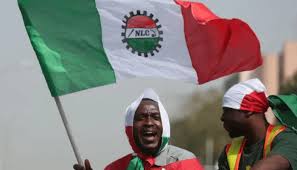The Federal Government has promised to stop deductions from the Employees’ Compensation Scheme managed by the Nigeria Social Insurance Trust Fund in order to ease rising tension with the Nigeria Labour Congress, which had threatened a nationwide strike.
The Nigeria Labour Congress had accused the government of taking away 40 per cent of employer contributions and sending it to the federal treasury. The union said the move was unlawful and dangerous to workers’ welfare. It demanded that the money be refunded and also asked the government to quickly reconstitute the Governing Board of the National Pension Commission. The union warned that if nothing was done, workers across the country would begin an indefinite strike.
The Employees’ Compensation Scheme is a social insurance programme established by law to protect workers who suffer injuries, illnesses, disabilities or even death in the course of their job. It is funded entirely by employers who pay about one per cent of their workers’ monthly payroll. Employees are not required to contribute any money to the scheme.
The controversy began after the Federal Ministry of Finance released a circular in December 2023 directing all government-owned enterprises to remit half of their internally generated revenue to the treasury. The policy was signed by the Minister of Finance and Coordinating Minister of the Economy, Mr Wale Edun. It was introduced to raise more government revenue and reduce Nigeria’s rising fiscal deficit. The policy had the full backing of President Bola Ahmed Tinubu.
However, the NSITF later discovered that the deductions also affected funds meant for the Employees’ Compensation Scheme. In a letter dated August 16, 2025, the Managing Director of NSITF, Mr Oluwaseun Faleye, confirmed that deductions were made but insisted they were not diverted. He explained that the deductions were part of the IGR policy but had since been corrected after intervention. He said that a directive issued in March 2024 by the Accountant-General of the Federation stopped the deductions from statutory contributions. But he admitted that investment income generated from the contributions was still being deducted.
Faleye said discussions were ongoing between NSITF, the Ministry of Finance and the Budget Office to completely end the deductions. He also gave assurance that no further deductions would be made from either the contributions or their investment proceeds.
The Nigeria Labour Congress acknowledged receiving the letter from NSITF but insisted that its executive council would still meet to decide on whether or not to go ahead with the planned strike. The Assistant General Secretary of NLC, Mr Christopher Onyeka, said the NSITF should not be treated as a revenue-generating agency. He stressed that workers’ compensation funds do not belong to the government and should never be used to solve fiscal problems.
Onyeka warned that removing money from the scheme would weaken its capacity to protect workers in cases of accidents or injuries. He said the contributions were made solely for workers’ welfare and must remain protected. The NLC also accused the Ministry of Finance of wrongly classifying the NSITF as if it were a commercial company, describing the move as an anomaly.
The union equally raised concerns over the non-constitution of the Pension Commission Governing Board. It argued that the absence of a full board since the dissolution of federal boards in June 2023 violated the Pension Reform Act 2014. According to the law, PenCom should have a 16-member board with representatives from labour, employers, pensioners and regulators. The union said the vacuum had allowed the government to take unilateral control of pension funds, raising fears of mismanagement and political interference.
The Centre for Pension Rights Advocacy and other labour activists also supported the call for the immediate reconstitution of the PenCom board. They argued that transparency in pension administration was being weakened by the prolonged delay.
Meanwhile, some civil society groups have urged the government and labour to embrace negotiation instead of confrontation. A consumer rights advocate, Mr Moses Igbrude, advised both sides to meet and agree on a sustainable solution that would protect workers without destabilising the economy. He said strikes should be the last option, not the first.
But the NLC has insisted that workers’ funds are sacred and cannot be tampered with under any circumstance. The union said it would continue to resist any action that puts workers’ welfare at risk. With ongoing disputes over minimum wage, electricity tariffs and the removal of fuel subsidy, the latest disagreement over NSITF deductions adds to the list of unresolved issues between the labour movement and the Tinubu administration.
The coming days will show whether the assurances from the Ministry of Finance and NSITF will be enough to calm labour’s anger or whether the country may once again face widespread industrial action.
